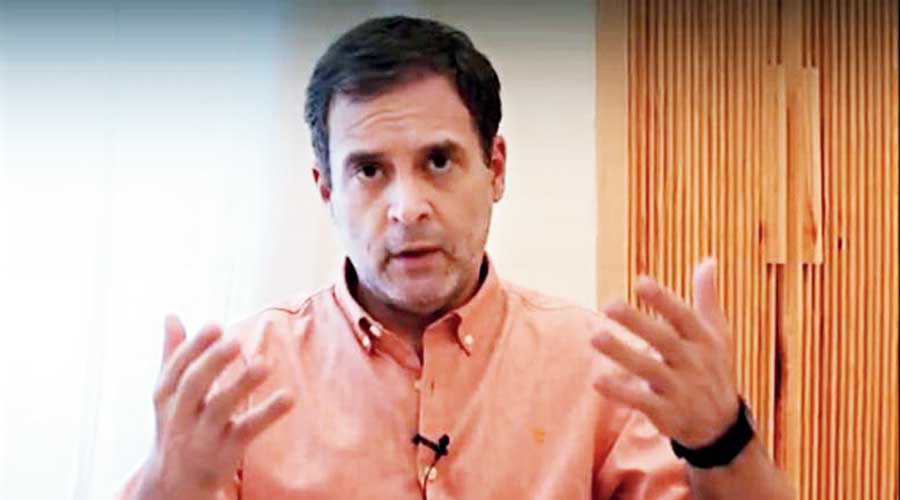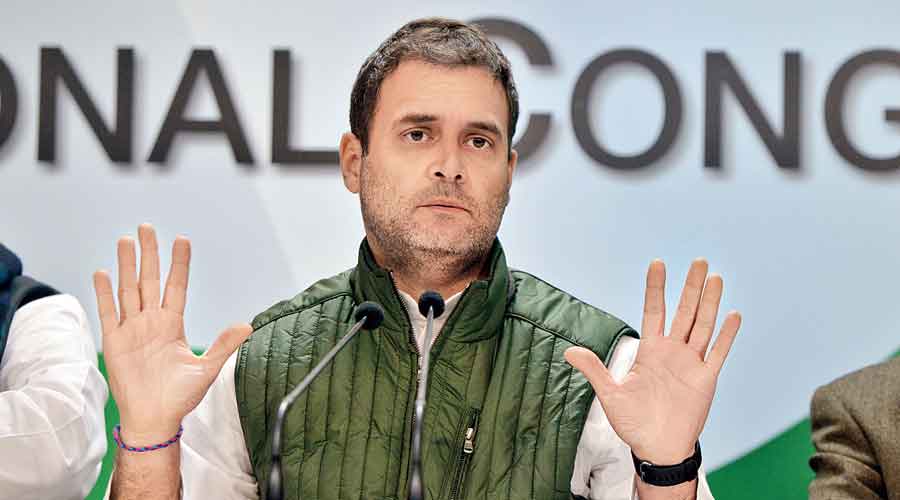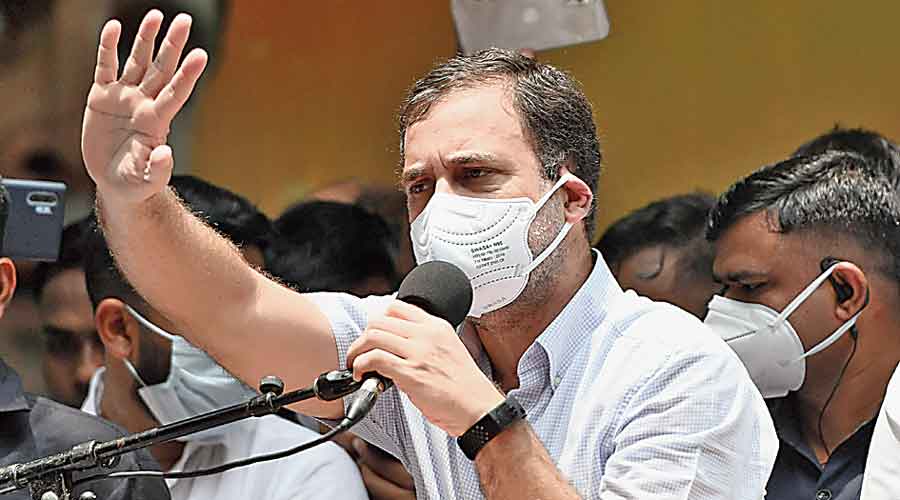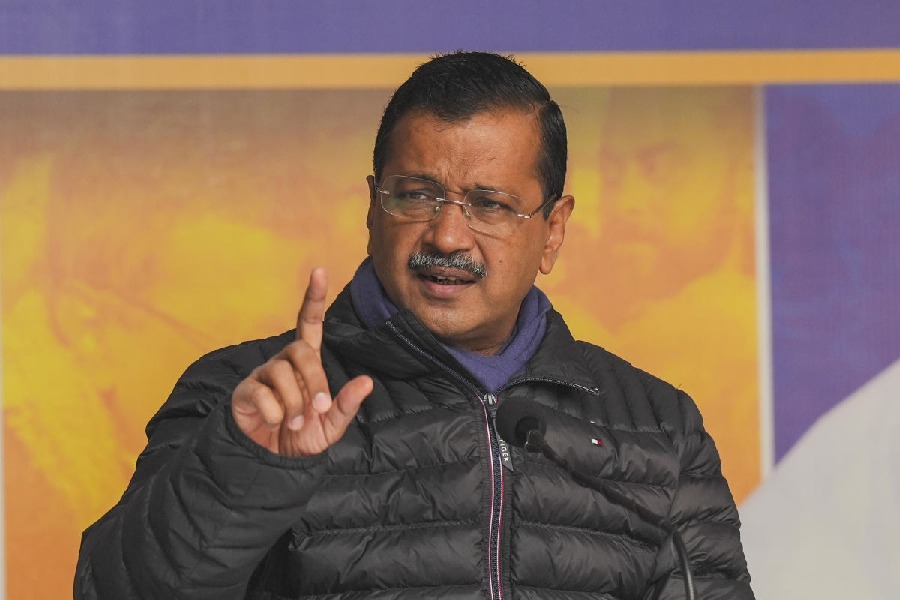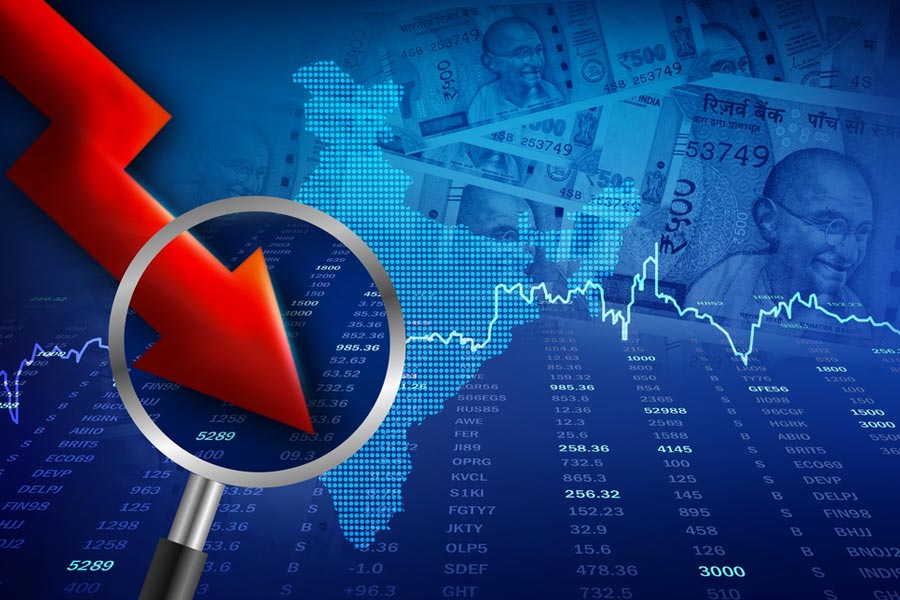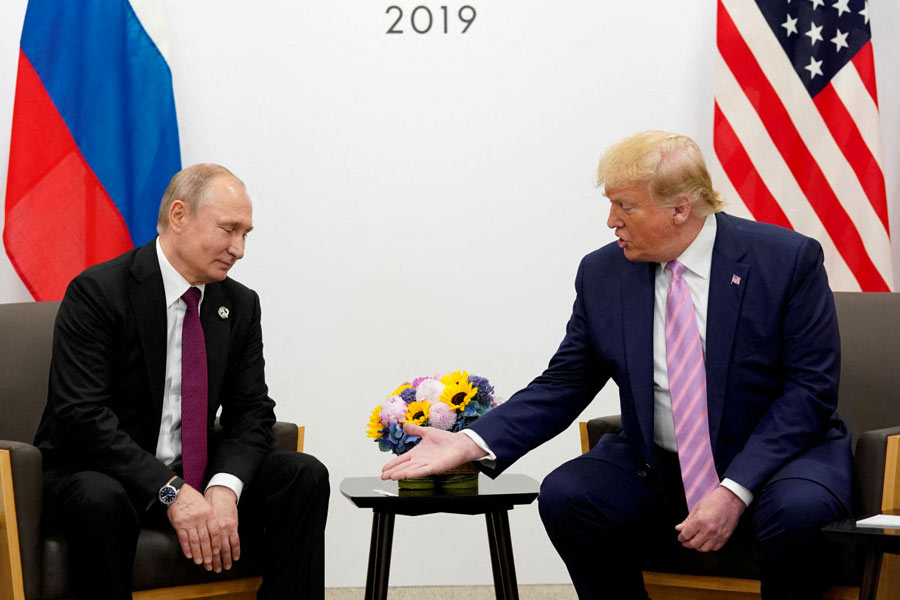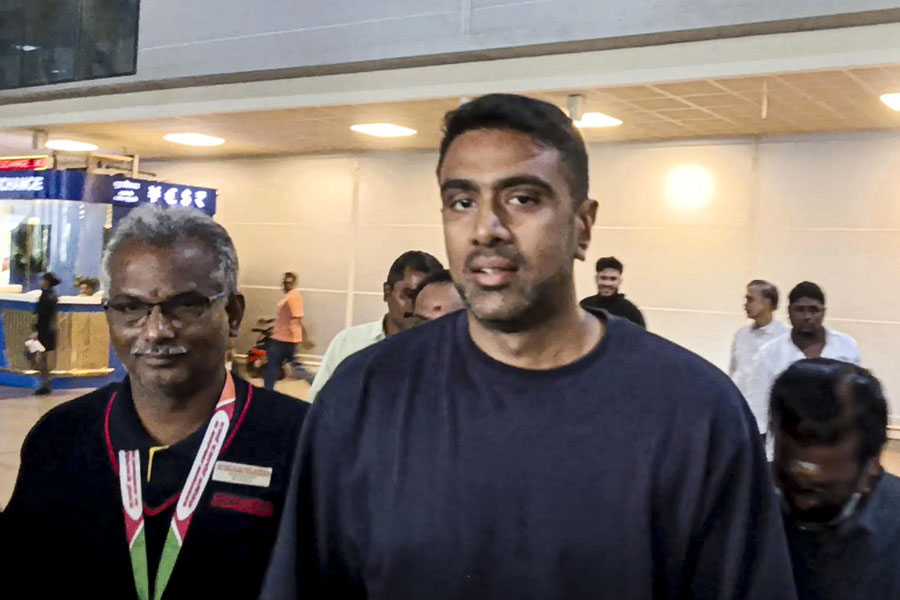Rahul Gandhi on Friday broadened the questions swirling around Twitter’s perceived discriminatory action on Congress handles, triggering a debate on multinational companies’ power to control and manipulate public discourse.
“As Indians, we have to ask the question: are we going to allow companies just because they are beholden to the Government of India to define our politics for us? Is that what this is going to come to, or are we going to define our politics on our own? That's the real question here,” the Congress MP said in a video posted on Instagram.
Efforts are already under way to nudge Instagram, owned by Facebook, to take action against Rahul for a post on a child was murdered after she was allegedly raped.
Rahul said in the Instagram video: "By shutting down my Twitter (account), they are interfering in our political process. A company is making its business to define our politics. And as a politician, I don't like that."
He added: “This is an attack on the democratic structure of the country; this is not an attack on Rahul Gandhi. This is not, you know, simply shutting Rahul Gandhi down. I have 19-20 million followers. You are denying them the right to an opinion. That's what you are doing."
Rahul's Twitter account was locked a week ago after he posted a photograph of himself with the parents of the nine-year-old Dalit girl, his act drawing accusations of revealing the victim's identity. This was followed by a crackdown on Congress handles by Twitter.
According to the Congress, Rahul had not violated any laws or rules as the identity of the girl's mother had already been made public and several eminent people – and at least one commission -- had posted her photograph before Rahul did.
Rahul has focused on the larger implications that Twitter's action might have on the future of democracy.
"So this is not only patently unfair, this is their breaching the idea that Twitter is a neutral platform. And for the investors, this is a very dangerous thing because taking sides in the political contest has repercussions for Twitter," Rahul said.
"Our democracy is under attack. We are not allowed to speak in Parliament. The media is controlled. And I thought there was a ray of light, where we could put what we thought on Twitter. But obviously, that's not the case.
"It's obvious now that Twitter is actually not a neutral, objective platform. It's a biased platform. It's something that listens to what the government of the day says.”
Many Congress leaders too wondered whether the right to free speech should be at the mercy of a company. Others asked whether the unbridled power available to social media platforms to control and manipulate public discourse should be left unchallenged.
Even the younger politicians, who normally feel empowered by modern communication tools, have found it hard to digest that an American company should have the power to lock the accounts of India's main Opposition party.
Some of the questions being asked are:
⚫ Twitter can flag or delete a tweet it finds objectionable but can it terminate the account holder's right to communicate at its whim?
⚫What if private telecom companies start monitoring calls and disconnecting people who criticise the government or violate a rule framed by them?
⚫What should be the basis of any such purge - the company's business interest or the country's constitutional scheme? Can Twitter or Facebook control public discourse through their algorithms?
Asked whether any legal recourse was available, senior lawyer and Congress spokesperson Abhishek Singhvi told The Telegraph: "Twitter is entitled to have its own rules in individual countries (most rules are/ should be uniform, only very few vary) but they are always subject to the laws of the country within which (the company) operates."
Singhvi added: "Twitter's rules cannot violate or override the laws of a particular country unless Twitter can get those laws struck down by a competent court of that country. As far as a user is concerned, he has full rights to challenge any of Twitter's rules in his own country's courts and get it struck down provided he is able to show that that Twitter rule violates any law of his country."
Otherwise, "the user would be contractually bound to follow Twitter's rules since they constitute an agreement between him and Twitter when he joins Twitter".

